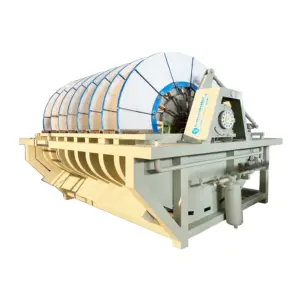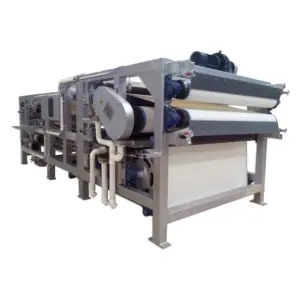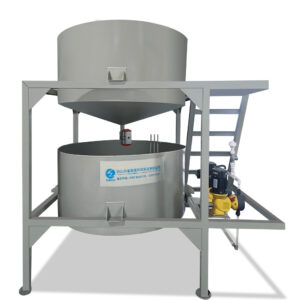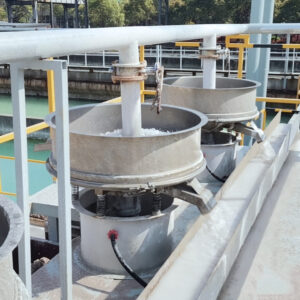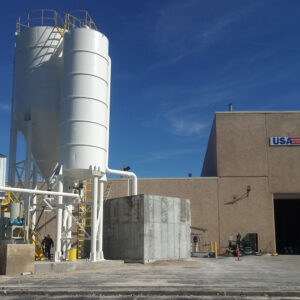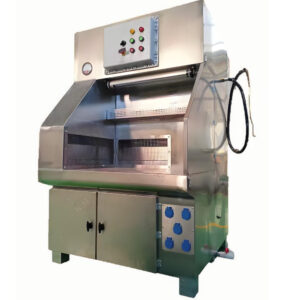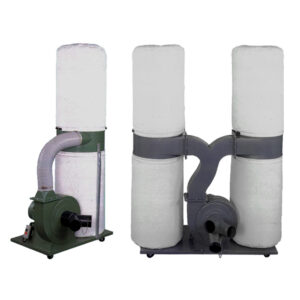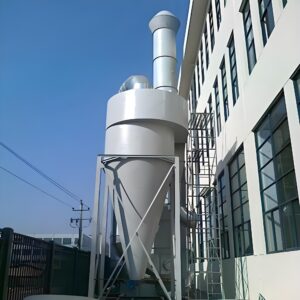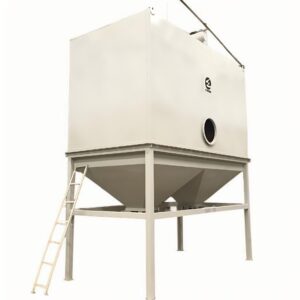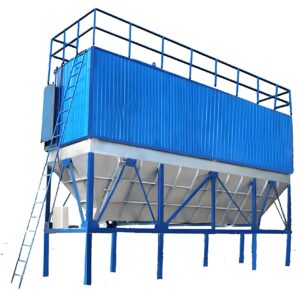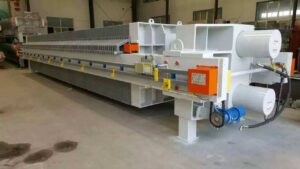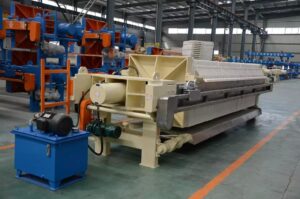Filtrate management is a critical aspect of filter press operations that often goes overlooked but plays a pivotal role in the efficiency and effectiveness of various industrial processes. As industries strive for more sustainable and cost-effective solutions, proper handling and treatment of filtrate have become increasingly important. From wastewater treatment to chemical processing, the way we manage filtrate can significantly impact both environmental compliance and operational costs.
In this comprehensive guide, we'll explore the intricacies of filtrate management in filter press operations, diving deep into the challenges, best practices, and innovative solutions that are shaping the industry today. We'll examine how proper filtrate management can lead to improved process efficiency, reduced environmental impact, and substantial cost savings for businesses across various sectors.
As we delve into this topic, we'll uncover the key components of effective filtrate management, from initial collection and storage to advanced treatment and recycling techniques. We'll also discuss the latest technologies and methodologies that are revolutionizing the way industries approach filtrate handling, ensuring compliance with increasingly stringent environmental regulations while maximizing resource utilization.
"Effective filtrate management is not just about handling waste; it's about transforming a potential liability into a valuable resource. By implementing proper filtrate management strategies, industries can significantly reduce their environmental footprint while simultaneously improving their bottom line."
This statement encapsulates the essence of modern filtrate management, emphasizing its dual role in environmental stewardship and economic efficiency. As we progress through this article, we'll explore how this principle is applied in various industrial settings and the innovative approaches that are driving the future of filtrate management in filter press operations.
What are the key components of an effective filtrate management system?
An effective filtrate management system is the backbone of any successful filter press operation. It encompasses a range of components and processes designed to handle, treat, and potentially reuse the liquid byproduct of filtration processes. Understanding these key components is crucial for optimizing filtrate management and maximizing the efficiency of filter press operations.
At its core, an effective filtrate management system typically includes collection systems, storage facilities, treatment processes, and disposal or recycling mechanisms. Each of these components plays a vital role in ensuring that filtrate is handled safely, efficiently, and in compliance with environmental regulations.
The design of a filtrate management system must take into account factors such as the volume and composition of the filtrate, the specific requirements of the industry, and the potential for resource recovery. Advanced systems may incorporate real-time monitoring, automated control systems, and innovative treatment technologies to enhance performance and reduce operational costs.
"A well-designed filtrate management system can reduce wastewater treatment costs by up to 30% while significantly improving the quality of treated water for discharge or reuse."
This claim underscores the potential economic and environmental benefits of investing in a comprehensive filtrate management system. By implementing such systems, industries can not only comply with regulations but also realize substantial cost savings and contribute to sustainable water management practices.
| Component | Function | Benefit |
|---|---|---|
| Collection System | Captures and directs filtrate | Prevents environmental contamination |
| Storage Facilities | Holds filtrate for treatment | Allows for controlled processing |
| Treatment Processes | Removes contaminants | Enables water reuse or safe discharge |
| Monitoring Equipment | Tracks filtrate quality | Ensures regulatory compliance |
In conclusion, the key components of an effective filtrate management system work in concert to ensure that filtrate is handled responsibly and efficiently. By investing in these systems, industries can protect the environment, comply with regulations, and often realize significant cost savings through improved resource utilization.
How does proper filtrate management impact environmental compliance?
Proper filtrate management plays a crucial role in ensuring environmental compliance across various industries. As regulatory bodies continue to tighten restrictions on industrial discharges and waste management, the importance of effective filtrate handling has never been more pronounced. By implementing robust filtrate management practices, companies can not only meet but often exceed environmental standards, fostering a reputation for sustainability and responsible operation.
One of the primary ways filtrate management impacts environmental compliance is through the reduction of pollutants in wastewater discharges. Advanced treatment technologies, when integrated into a comprehensive filtrate management system, can significantly reduce the concentration of contaminants such as heavy metals, organic compounds, and suspended solids. This not only helps in meeting discharge limits but also contributes to the overall improvement of water quality in receiving water bodies.
Moreover, proper filtrate management often involves the implementation of closed-loop systems and water recycling techniques. These approaches minimize the volume of wastewater discharged to the environment, conserving water resources and reducing the overall environmental footprint of industrial operations. PORVOO has been at the forefront of developing such innovative solutions, helping industries achieve their environmental compliance goals while optimizing their operational efficiency.
"Industries that implement comprehensive filtrate management systems can reduce their wastewater discharge volumes by up to 50%, significantly lowering their environmental impact and associated compliance costs."
This statement highlights the tangible benefits of investing in advanced filtrate management solutions. By reducing discharge volumes, companies not only minimize their environmental impact but also potentially reduce the costs associated with wastewater treatment and regulatory compliance.
| Compliance Aspect | Impact of Proper Filtrate Management |
|---|---|
| Discharge Limits | Helps meet or exceed regulatory standards |
| Water Conservation | Reduces freshwater consumption through recycling |
| Pollutant Reduction | Minimizes the release of harmful substances |
| Reporting Requirements | Facilitates accurate monitoring and documentation |
In conclusion, proper filtrate management is an essential component of environmental compliance strategies for industries utilizing filter press operations. By investing in advanced filtrate management systems and practices, companies can ensure they meet regulatory requirements, reduce their environmental impact, and position themselves as leaders in sustainable industrial practices.
What are the latest technologies revolutionizing filtrate management?
The field of filtrate management is experiencing rapid technological advancements, with new innovations constantly emerging to address the challenges of efficiency, sustainability, and regulatory compliance. These cutting-edge technologies are transforming the way industries approach filtrate handling, offering solutions that were once thought impossible.
One of the most significant developments in recent years has been the integration of artificial intelligence (AI) and machine learning algorithms into filtrate management systems. These smart systems can analyze vast amounts of data in real-time, optimizing treatment processes, predicting maintenance needs, and identifying potential issues before they become critical. This proactive approach not only improves efficiency but also significantly reduces downtime and operational costs.
Another revolutionary technology is the development of advanced membrane filtration systems. These high-performance membranes can remove contaminants at the molecular level, producing filtrate of exceptional quality that can often be directly reused in industrial processes. The Filtrate Management solutions offered by industry leaders are incorporating these advanced membranes to achieve unprecedented levels of filtrate purity and resource recovery.
"Advanced membrane filtration technologies, when integrated into a comprehensive filtrate management system, can achieve recovery rates of up to 95% for certain industrial processes, dramatically reducing water consumption and waste generation."
This claim underscores the transformative potential of advanced membrane technologies in filtrate management. By achieving such high recovery rates, industries can significantly reduce their water footprint and waste generation, leading to substantial cost savings and improved environmental performance.
| Technology | Application | Benefit |
|---|---|---|
| AI and Machine Learning | Process optimization | Improved efficiency and reduced downtime |
| Advanced Membranes | Contaminant removal | Higher filtrate quality and increased reuse potential |
| Electrocoagulation | Heavy metal removal | Enhanced treatment of complex industrial wastewaters |
| UV-LED Treatment | Disinfection | Chemical-free pathogen inactivation |
In conclusion, the latest technologies in filtrate management are revolutionizing industrial processes, offering unprecedented levels of efficiency, sustainability, and compliance. As these technologies continue to evolve, we can expect to see even more innovative solutions that will further transform the landscape of filtrate management in filter press operations.
How can industries optimize filtrate recycling and reuse?
Optimizing filtrate recycling and reuse is a critical strategy for industries looking to reduce their environmental impact, conserve resources, and lower operational costs. As water scarcity becomes an increasingly pressing global issue, the ability to effectively recycle and reuse filtrate is not just an environmental consideration but a competitive advantage.
The first step in optimizing filtrate recycling and reuse is to conduct a comprehensive analysis of the filtrate's composition and the specific requirements of the industrial process. This analysis helps identify potential reuse opportunities and determines the level of treatment necessary to make the filtrate suitable for reuse. Advanced analytical techniques, including real-time monitoring systems, can provide valuable insights into filtrate quality and help tailor treatment processes for optimal results.
Implementing a multi-stage treatment process is often key to maximizing filtrate recycling potential. This may include a combination of physical, chemical, and biological treatment methods, each designed to target specific contaminants or properties of the filtrate. For instance, membrane filtration technologies can be used to remove suspended solids and dissolved contaminants, while advanced oxidation processes can break down complex organic compounds.
"Industries that implement comprehensive filtrate recycling programs can reduce their freshwater consumption by up to 70%, leading to significant cost savings and improved water security."
This statement highlights the substantial benefits that can be achieved through effective filtrate recycling and reuse strategies. By significantly reducing freshwater consumption, industries can not only lower their operational costs but also enhance their resilience to water scarcity issues.
| Recycling Strategy | Application | Benefit |
|---|---|---|
| Cascading Water Use | Multi-step processes | Maximizes water efficiency |
| Selective Ion Exchange | Targeted contaminant removal | Enables reuse in sensitive processes |
| Membrane Bioreactors | Biological treatment | Produces high-quality reusable water |
| Zero Liquid Discharge | Complete water recovery | Eliminates wastewater discharge |
In conclusion, optimizing filtrate recycling and reuse requires a multifaceted approach that combines thorough analysis, advanced treatment technologies, and innovative process design. By implementing these strategies, industries can significantly reduce their water footprint, lower costs, and position themselves as leaders in sustainable water management practices.
What role does automation play in modern filtrate management systems?
Automation has become an integral part of modern filtrate management systems, revolutionizing the way industries handle and process filtrate from filter press operations. The integration of automated systems into filtrate management not only enhances efficiency and accuracy but also contributes significantly to safety and compliance efforts.
One of the primary benefits of automation in filtrate management is the ability to continuously monitor and adjust process parameters in real-time. Advanced sensors and control systems can track key indicators such as flow rates, pH levels, and contaminant concentrations, making instantaneous adjustments to ensure optimal performance. This level of precision and responsiveness is difficult, if not impossible, to achieve with manual operations alone.
Automated filtrate management systems also play a crucial role in data collection and analysis. By gathering and processing vast amounts of operational data, these systems can identify trends, predict maintenance needs, and optimize treatment processes. This data-driven approach enables industries to make informed decisions about their filtrate management strategies, leading to improved efficiency and reduced operational costs.
"Implementing fully automated filtrate management systems can reduce operational errors by up to 90% while increasing treatment efficiency by 30%, resulting in significant improvements in both compliance and cost-effectiveness."
This claim underscores the transformative impact of automation on filtrate management. By drastically reducing errors and enhancing efficiency, automated systems not only improve regulatory compliance but also contribute to substantial cost savings for industries.
| Automation Feature | Function | Benefit |
|---|---|---|
| Real-time Monitoring | Continuous process tracking | Ensures optimal performance |
| Predictive Maintenance | Anticipates equipment needs | Reduces downtime and repair costs |
| Adaptive Control Systems | Automatic process adjustments | Optimizes treatment efficiency |
| Data Analytics | Trend analysis and reporting | Facilitates informed decision-making |
In conclusion, automation plays a pivotal role in modern filtrate management systems, offering unprecedented levels of control, efficiency, and insight. As automation technologies continue to advance, we can expect to see even more sophisticated and integrated solutions that will further transform the landscape of filtrate management in industrial settings.
How do regulatory standards influence filtrate management practices?
Regulatory standards play a pivotal role in shaping filtrate management practices across industries. As environmental concerns continue to gain prominence, regulatory bodies worldwide are implementing increasingly stringent guidelines for industrial wastewater treatment and discharge. These regulations not only set the bar for compliance but also drive innovation in filtrate management technologies and practices.
One of the primary ways regulatory standards influence filtrate management is by setting specific limits on the concentration of various contaminants in discharged wastewater. These limits often necessitate the implementation of advanced treatment technologies and sophisticated filtrate management systems to ensure compliance. Industries must carefully design their filtrate management strategies to meet these requirements consistently, often going beyond mere compliance to future-proof their operations against potential regulatory changes.
Moreover, regulatory standards often promote the adoption of best practices in filtrate management, such as the implementation of closed-loop systems, water recycling, and zero liquid discharge (ZLD) technologies. These approaches not only help industries meet discharge limits but also align with broader sustainability goals and resource conservation efforts.
"Industries that proactively adopt filtrate management practices that exceed current regulatory standards can reduce their compliance-related costs by up to 40% over a five-year period, while also mitigating the risk of future regulatory non-compliance."
This statement highlights the long-term benefits of taking a proactive approach to regulatory compliance in filtrate management. By implementing systems and practices that go beyond current requirements, industries can not only ensure ongoing compliance but also realize significant cost savings and risk reduction.
| Regulatory Aspect | Impact on Filtrate Management | Industry Response |
|---|---|---|
| Discharge Limits | Requires advanced treatment | Implementation of cutting-edge technologies |
| Monitoring Requirements | Necessitates accurate data collection | Investment in automated monitoring systems |
| Reporting Standards | Demands comprehensive documentation | Development of integrated data management solutions |
| Resource Conservation | Encourages water reuse | Adoption of closed-loop and ZLD systems |
In conclusion, regulatory standards serve as a driving force in the evolution of filtrate management practices. By setting clear expectations and promoting best practices, these regulations push industries to innovate and implement more effective and sustainable filtrate management solutions. As environmental concerns continue to grow, we can expect regulatory standards to become even more influential in shaping the future of filtrate management in filter press operations.
What are the economic benefits of efficient filtrate management?
Efficient filtrate management offers a multitude of economic benefits that extend far beyond mere regulatory compliance. As industries increasingly recognize the value of proper filtrate handling, they are discovering that investments in advanced filtrate management systems can yield substantial returns and contribute significantly to their bottom line.
One of the most immediate economic benefits of efficient filtrate management is the reduction in water consumption and associated costs. By implementing advanced treatment and recycling technologies, industries can dramatically decrease their freshwater intake, leading to lower water bills and reduced dependency on external water sources. This is particularly crucial in regions facing water scarcity or where water prices are escalating.
Furthermore, effective filtrate management can lead to significant savings in waste disposal costs. By treating and reusing filtrate on-site, industries can minimize the volume of wastewater that needs to be discharged or transported for off-site treatment. This not only reduces disposal fees but also mitigates the risks and costs associated with regulatory non-compliance.
"Industries that implement comprehensive filtrate management systems can achieve a return on investment within 2-3 years, with ongoing annual savings of up to 25% in water and waste management costs."
This claim underscores the substantial economic potential of investing in efficient filtrate management. The rapid return on investment and ongoing savings make such systems not just environmentally responsible but also financially attractive.
| Economic Benefit | Description | Potential Savings |
|---|---|---|
| Reduced Water Costs | Decreased freshwater consumption | Up to 50% of water bills |
| Lower Disposal Fees | Minimized wastewater discharge | 30-40% reduction in disposal costs |
| Energy Savings | Optimized treatment processes | 15-20% decrease in energy consumption |
| Regulatory Compliance | Avoided fines and penalties | Variable, but potentially significant |
In conclusion, the economic benefits of efficient filtrate management are substantial and multifaceted. From direct cost savings on water and waste management to indirect benefits such as improved operational efficiency and regulatory compliance, the financial case for investing in advanced filtrate management systems is compelling. As industries continue to face pressure to reduce costs and improve sustainability, efficient filtrate management will increasingly be seen as a key strategy for achieving both economic and environmental goals.
In conclusion, filtrate management in filter press operations is a critical aspect of industrial processes that demands careful attention and innovative solutions. Throughout this exploration, we've uncovered the multifaceted nature of effective filtrate management and its far-reaching impacts on environmental compliance, operational efficiency, and economic performance.
We've seen how proper filtrate management can significantly reduce environmental footprints, with technologies capable of achieving up to 95% recovery rates in certain processes. This not only addresses growing concerns about water scarcity but also positions industries at the forefront of sustainable practices. The integration of cutting-edge technologies, from AI-driven systems to advanced membrane filtration, is revolutionizing the field, offering unprecedented levels of control and efficiency.
The economic benefits of efficient filtrate management are equally compelling. With potential annual savings of up to 25% in water and waste management costs, and the ability to achieve ROI within 2-3 years, the financial case for investing in advanced filtrate management systems is strong. These economic advantages go hand-in-hand with improved regulatory compliance, reduced operational risks, and enhanced resource utilization.
As regulatory standards continue to evolve, the importance of proactive filtrate management becomes even more pronounced. Industries that adopt practices exceeding current standards not only ensure ongoing compliance but can also realize significant cost savings and risk reduction over time.
Looking to the future, the role of automation and data analytics in filtrate management will likely expand, offering even greater opportunities for optimization and efficiency. The trend towards closed-loop systems and zero liquid discharge technologies is set to continue, driven by both regulatory pressures and the tangible benefits of resource recovery.
In essence, effective filtrate management is no longer just an operational necessity but a strategic advantage. It offers a path to improved environmental performance, regulatory compliance, and economic efficiency. As industries continue to navigate the challenges of sustainable operation in a resource-constrained world, innovative filtrate management solutions will undoubtedly play a pivotal role in shaping the future of industrial processes.
External Resources
What is Water Filtration? – This article provides a comprehensive overview of water filtration, including its definition, types, and applications in water and wastewater treatment, which is relevant to understanding filtrate management.
Water Filtration Methods Explained – This resource details various water filtration methods, including membrane filtration, rapid sand filtration, and slow sand filtration, which are crucial for managing filtrates effectively.
Filtration – This Wikipedia article explains the physical separation process of filtration, including the types of filtration and the mechanisms involved, which is foundational for understanding filtrate management.
Types of Filtration Systems Used for Wastewater Applications – This article focuses on filtration systems used in wastewater treatment, including membrane filtration, ultrafiltration, and microfiltration, which are key in managing filtrates in wastewater treatment.
Wastewater Treatment: Ultimate Guide to Filtration Methods – This guide covers the stages of wastewater treatment, including primary, secondary, and tertiary treatment, and highlights the role of filtration in each stage, which is essential for filtrate management.
Membrane Filtration in Water and Wastewater Treatment – This resource provides detailed information on membrane filtration, including its applications, benefits, and challenges, which is critical for managing filtrates in advanced water treatment processes.
Water Treatment and Filtration – The U.S. Environmental Protection Agency (EPA) provides information on water treatment and filtration methods, including guidelines and regulations that impact filtrate management.
Industrial Wastewater Treatment Methods – This article discusses various methods for treating industrial wastewater, including filtration techniques, which are vital for managing filtrates in industrial settings.
